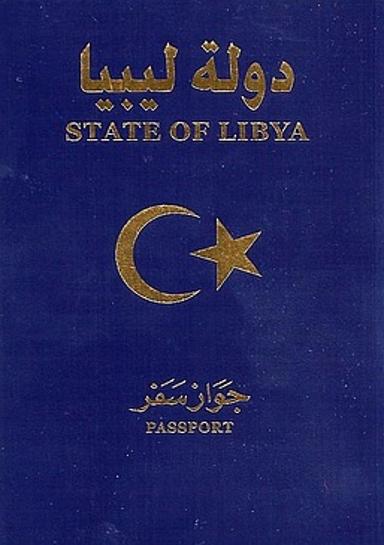
 Libya
Libya
 Libya
Libya Albania
Albania Antigua and Barbuda
Antigua and Barbuda Australia
Australia Bahamas
Bahamas Bahrain
Bahrain Bhutan
Bhutan Botswana
Botswana Cameroon
Cameroon Colombia
Colombia DR Congo
DR Congo Ivory Coast
Ivory Coast Ecuador
Ecuador El Salvador
El Salvador Equatorial Guinea
Equatorial Guinea Ethiopia
Ethiopia Gabon
Gabon Georgia
Georgia Guinea
Guinea Hong Kong
Hong Kong Indonesia
Indonesia Iraq
Iraq Kenya
Kenya Kyrgyzstan
Kyrgyzstan Lesotho
Lesotho Malawi
Malawi Moldova
Moldova Oman
Oman Pakistan
Pakistan Papua New Guinea
Papua New Guinea Qatar
Qatar Saint Kitts and Nevis
Saint Kitts and Nevis Sao Tome and Principe
Sao Tome and Principe Sierra Leone
Sierra Leone Singapore
Singapore South Korea
South Korea South Sudan
South Sudan Syria
Syria Tajikistan
Tajikistan Thailand
Thailand Togo
Togo Uganda
Uganda United Arab Emirates
United Arab Emirates Vietnam
Vietnam Zambia
Zambia Zimbabwe
Zimbabwe Afghanistan
Afghanistan Andorra
Andorra Angola
Angola Argentina
Argentina Armenia
Armenia Austria
Austria Azerbaijan
Azerbaijan Bangladesh
Bangladesh Barbados
Barbados Belarus
Belarus Belgium
Belgium Belize
Belize Bosnia and Herzegovina
Bosnia and Herzegovina Brazil
Brazil Brunei
Brunei Bulgaria
Bulgaria Canada
Canada Central African Republic
Central African Republic Chad
Chad Chile
Chile China
China Congo
Congo Costa Rica
Costa Rica Croatia
Croatia Cuba
Cuba Cyprus
Cyprus Czech Republic
Czech Republic Denmark
Denmark Dominican Republic
Dominican Republic Egypt
Egypt Eritrea
Eritrea Estonia
Estonia Swaziland
Swaziland Fiji
Fiji Finland
Finland France
France Germany
Germany Greece
Greece Grenada
Grenada Guatemala
Guatemala Guyana
Guyana Honduras
Honduras Hungary
Hungary Iceland
Iceland India
India Ireland
Ireland Israel
Israel Italy
Italy Jamaica
Jamaica Japan
Japan Jordan
Jordan Kazakhstan
Kazakhstan Kiribati
Kiribati Kosovo
Kosovo Kuwait
Kuwait Laos
Laos Latvia
Latvia Liberia
Liberia Liechtenstein
Liechtenstein Lithuania
Lithuania Luxembourg
Luxembourg Mali
Mali Malta
Malta Marshall Islands
Marshall Islands Mauritius
Mauritius Mexico
Mexico Monaco
Monaco Mongolia
Mongolia Montenegro
Montenegro Morocco
Morocco Myanmar
Myanmar Namibia
Namibia Nauru
Nauru Netherlands
Netherlands New Zealand
New Zealand Nicaragua
Nicaragua Niger
Niger North Korea
North Korea North Macedonia
North Macedonia Norway
Norway Panama
Panama Paraguay
Paraguay Peru
Peru Philippines
Philippines Poland
Poland Portugal
Portugal Romania
Romania Russia
Russia Saint Lucia
Saint Lucia San Marino
San Marino Saudi Arabia
Saudi Arabia Serbia
Serbia Slovakia
Slovakia Slovenia
Slovenia Solomon Islands
Solomon Islands Somalia
Somalia South Africa
South Africa Spain
Spain Sudan
Sudan Suriname
Suriname Sweden
Sweden Switzerland
Switzerland Taiwan
Taiwan Tonga
Tonga Trinidad and Tobago
Trinidad and Tobago Turkey
Turkey Turkmenistan
Turkmenistan Ukraine
Ukraine United Kingdom
United Kingdom United States
United States Uruguay
Uruguay Uzbekistan
Uzbekistan Vanuatu
Vanuatu Vatican
Vatican Venezuela
Venezuela Yemen
YemenLibya, located in North Africa, is the fourth largest country in Africa by area. It has a population of approximately 6.5 million people, with the majority residing in the coastal cities of Tripoli and Benghazi. The country shares its borders with six other African countries and has coastlines along the Mediterranean Sea.
The climate in Libya is predominantly desert, characterized by extreme temperature fluctuations, from scorching hot days to chilly nights. However, the coastal regions enjoy a Mediterranean climate with hot, dry summers and mild, wet winters.
Libya’s culture is a blend of Arab, Berber, and African influences, reflected in its cuisine, music, and festivals. The official language is Arabic, and Islam is the predominant religion, influencing the country’s customs, laws, and daily life.
Economically, Libya relies heavily on its vast oil reserves, which contributes to most of its GDP and export earnings. However, political instability and security issues have significantly impacted the economy in recent years.
Despite the challenges, Libya boasts of rich history and heritage. It is home to five UNESCO World Heritage sites, including the spectacular Roman ruins at Leptis Magna and the prehistoric rock art in the Sahara Desert. The Libyan passport allows its holders to explore the world, but its power and global ranking vary based on geopolitical factors.